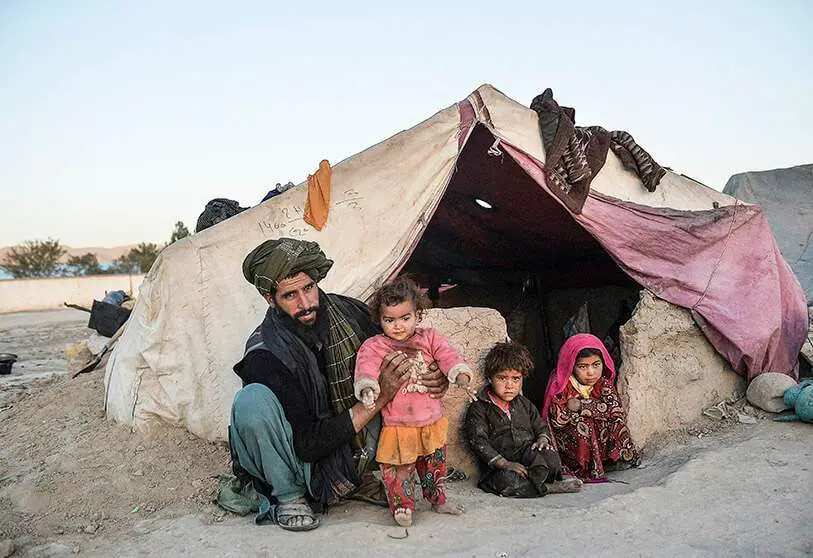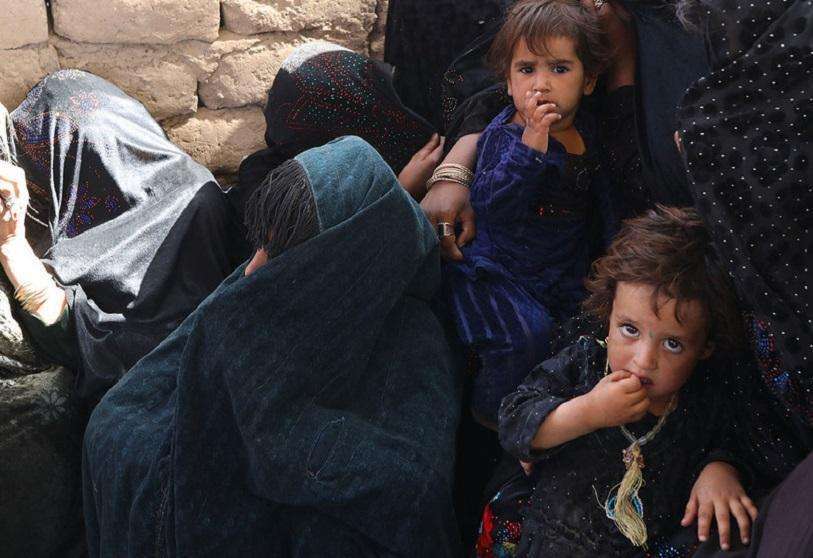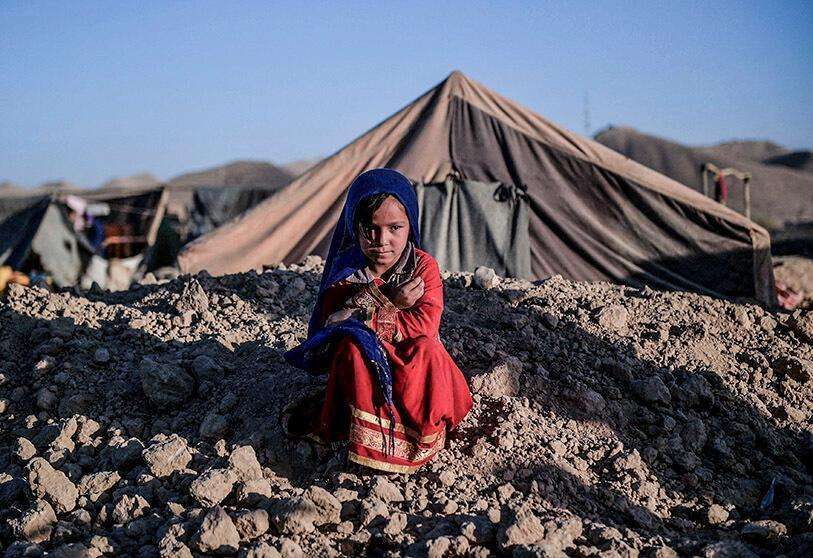Afghanistan: Malnutrition soars in Herat

Afghanistan's fragile health system has been facing serious shortages for years, and the suspension of international aid following recent political events has further deteriorated the situation. In Herat, MSF is treating an increasing number of malnutrition cases, as Mamman Mustapha, former MSF project coordinator in the province, explains.
The health system is on the verge of collapse throughout the country and the needs are enormous, and we are also seeing this in Herat. Access to health care was already a major problem in Afghanistan long before the Taliban takeover, but today the situation has further degraded with the suspension of most international aid, including World Bank funding for WHO's basic and essential care programmes in Herat province.

Medical facilities in the area are closing or reducing their activities to minimal services with the resources they have left available. We don't know what is going to happen to these facilities. The population is unemployed and living in poverty, unable to pay for private care. In addition, some of the humanitarian organisations previously working in the area have not yet fully resumed their activities.
The regional hospital in Herat, where MSF has a therapeutic nutrition hospital centre, lost some of its staff, its director and some of its most experienced workers left the country just before the fall of the city to the Taliban. The result has been a lack of management at the hospital and many administrative challenges. Outside the MSF-run nutrition centre, salaries have not been paid for five months, there are not enough medical supplies and no money to pay for maintenance. And meanwhile, the wards are full of patients. In short, the needs are everywhere and the system is failing.

Many actors, including the United Nations, warn that malnutrition is a major crisis in the country right now. Situation in MSF's nutrition programme in Herat.
Our indicators show that malnutrition is a major problem. I would probably define it as a looming crisis that started long before the recent events. Between May and September 2021, we observed an increase of almost 40% in the number of admissions to our programme at the therapeutic nutrition centre compared to the same period but in 2020. This year's malnutrition peak exceeded its usual levels in terms of intensity and duration. We expected a decrease in September, but we are actually seeing a further increase in the number of cases.
Lately the situation has worsened even more. Our therapeutic nutrition centre has been very busy, with more than 60 new admissions every week, and the number of inpatients has doubled our maximum capacity. For this reason we decided to increase the number of beds available. Many of our patients and their families travel more than 15 kilometres to seek medical care, some coming from distant places such as Badghis, Ghor and Farah provinces, more than 100 kilometres away.
There are probably several reasons behind the increase in malnutrition in the area, which may be indicative of a more generalised situation in Afghanistan: the lack of functioning health facilities in the area, economic recession (with an inflation rate of up to 30% for food), lack of liquidity, bank closures and a drought that is expected to persist through 2021.

We strive to explain to the community that we are there to provide medical assistance and not to take sides in any conflict. Our main asset is our impartiality and the quality of the services we provide, always respecting the local culture.
That said, the attacks in Kunduz and Kandahar were truly shocking. The Islamic State in Khorasan Province (ISK) claimed responsibility. ISK has a long history of attacking groups such as Shiites and Hazaras - Herat is home to large communities of both - and generally harmless civilians in the country.
This threat may have been exacerbated by the recent phase of instability. We do all we can to monitor the context and minimise the danger of being caught in an attack, knowing that we cannot completely eliminate that risk, which in reality applies to anyone in Afghanistan, including Herat.








